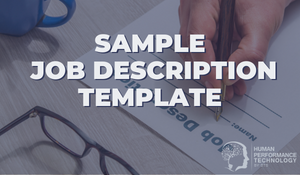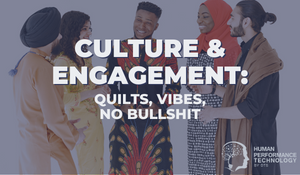The Human Capital Factors That Drive Stock Performance
If someone told you the way to make money on the stock market is to focus on the companies that are nicest to their employees without taking into account any company financials, you’d probably and understandably be a little sceptical, but “invest in human decency” is at least partially the premise that’s driving the stellar success of one hedge fund, Irrational Capital.
You may have already heard of the fund's creator, Dan Ariely, a leading researcher in behavioural economics, professor at James B. Duke University, and the bestselling author of Predictably Irrational.
As recently reported in the Australian Financial Review, Ariely has developed, based on 12 years of data, the Clear Motivation Index, which has “smashed" the S&P 500 Index.
Irrational Capital’s investment strategy and philosophy are outlined in this video talk.
Mindful of the talk runtime lingering on 25+ minutes — which I wouldn’t ask or expect you to watch in full — I’ll lightly touch on a few of the main points.
Ariely and his team examined over 80 behavioural aspects or factors.
Some of the factors correlated with stock performance include: Work Appreciated, Management Transparency, Safety, Management Follow Through, Openness, Fairness, Clear Expectations, Caring Environment, Strategic Clarity, Honest Mistakes Valued.
Some of the factors with little or no correlation include: Benefits, Training, Special Recognition, Physical Work Environment, Expected Tenure, Job Title.
According to Ariely’s analysis, companies in the top 20% on key behavioural factors in his Clear Motivation Index significantly outperformed the S&P 500, and companies in the bottom 20% generally underperformed.
Broadly, the factors that matter most tend to be deeply personal to employees, are typically non-material incentives, and by their nature are not very easy to measure.
Ariely isn't saying that business leaders should stop paying attention to low-correlation factors; his methodology is simply to discover the human capital measures that seem to matter most to stock performance, finding, for example, that "Honest Mistakes Valued” has a much higher correlation than “Benefits.”
Surprisingly, Ariely did not use any financial data (P&L statements, quarterly earnings, etc.) to develop his high-performing index.
While nothing in this article should be construed as strategic investment advice, Ariely’s research provides further evidence that some of the “softest” HR practices can have the strongest economic impact and executives who ignore the so-called “irrational” forces that foster goodwill and motivate human beings do so at their peril.

Theo Winter
Client Services Manager, Writer & Researcher. Theo is one of the youngest professionals in the world to earn an accreditation in TTI Success Insight's suite of psychometric assessments. For more than a decade, he worked with hundreds of HR, L&D and OD professionals and consultants to improve engagement, performance and emotional intelligence of leaders and their teams. He authored the book "40 Must-Know Business Models for People Leaders."



We Would Like to Hear From You (0 Comments)